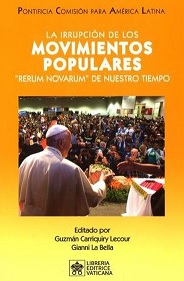La Madre Patria vive un trance difícil que aflora a nivel mundial, ante los recientes tumultos de Barcelona a raíz de las sentencias contra los independentistas catalanes. Como superar este lance no es un desafío solo español, lo es también para la Unión Europea, quienes deben apelar a la democracia y al diálogo para resolverlo. Lo lamentable del impasse es que se colapsa a una de las ciudades
 más bellas del mundo y al mismo tiempo a la región de mayor desarrollo económico de la península ibérica.
más bellas del mundo y al mismo tiempo a la región de mayor desarrollo económico de la península ibérica.
La conseja es tomar el rábano por las hojas para reconocer el origen del problema, que no es exclusivo de España sino de la historia del viejo continente. Para comprenderlo hay que profundizar las intimidades y dimensiones de los nacionalismos europeos, e identificar que los pueblos dispuestos a constituirse en naciones, bajo una sola lengua, economía, cultura y un solo estado despacharon mas temprano el entuerto.
El tiempo lo hubo, desde el paulatino derrumbe del feudalismo europeo, iniciado entre los siglos XVI al XVIII, se identifica en la revolución francesa (1789) la expresión más acabada de conformación del estado-nación, a tal nivel que en Francia conviven catalanes y vascos, como una región más de la nación gala, tanto en el Languedoc Roussillon, como en Biarritz, lo tienen claro al manifestar ¡ Vive la France ¡, otros tomaron el tren más tarde en el siglo XIX, y lo lograron con la unificación de Italia en el Risorgimento(1870) y Garibaldi a la cabeza, por otra parte la unificación alemana tomó su curso de la mano de Bismarck y la conformación del imperio(1871). Entre tanto los anglosajones siglos atrás conformaron sus naciones, bajo el manto de la iglesia anglicana y el pragmatismo del paraíso humano ubicado en la tierra y no el cielo.
La caprichosa historia europea no tuvo el mismo recorrido ni suerte con España, no hubo el liderazgo suficiente de las nuevas clases económicas para superar el Medioevo, y mucho menos de la curia y los terratenientes, al imponerse el conservadurismo de la monarquía como única representación de la nación y desperdiciar el último vagón del tren en las postrimerías del siglo XIX.
Al no resolver este desafío histórico logrado por otras naciones de Europa, abordó el siglo XX sacudida por su mayor tragedia, la pérdida de todas sus colonias en América, y el derrumbe moral, institucional, conjunto a la realidad de no haber podido alcanzar la unidad nacional. Hacia inicios de 1931 se conforma la segunda república española en sustitución de la monarquía, etapa que desembocó en el episodio más triste de su historia, la guerra civil y la instauración del fascismo franquista que arrastró al país a la edad media desde 1939 hasta 1975, y la pérdida de vida de mas de un millón de ciudadanos españoles.
Al retomarse la transición a la democracia en 1976 la cuestión nacional fue abordada en las Cortes españolas bajo la actual constitución (1978), que establece la monarquía como institución unificadora, conjuntamente con el reconocimiento de las autonomías entre otras: País Vasco, Andalucía, Cataluña, Galicia, etc. Por tanto el desafío para independentistas y Gobierno Central es reconocer las inequidades y llegar a un dialogo nacional, donde no se excluya una consulta popular acordada por ambos, como lo manifiesta un catalán universal, Joan Manuel Serrat, quien cuestionara la poca transparencia del referéndum dominical de octubre 2017 organizado a troche y moche por los independentistas, origen de los disturbios recientes de 2019 en diferentes ciudades de Cataluña.
En resumen, la gran pregunta a plantearse a los independentistas catalanes ¿Puede hoy Cataluña lograr un desarrollo pleno en tiempos de globalización, donde las fortalezas están en la integridad de las naciones y su capacidad de negociación frente a las grandes potencias? Quizás la respuesta la tengan los escoceses quienes en septiembre 2014 en referéndum, tras siglos de aspiración de independencia, se negaron a separarse del Reino Unido, o los propios británicos quienes en su mayoría se arrepienten de haber aprobado el Brexit en 2016, ya que conocen de sobra la historia de Inglaterra ligada a Europa en lugar de buscar una aventura de un acuerdo bilateral con Donald Trump. Como dijera recientemente el novelista británico John Le Carré 21/10/2019 “el Brexit es la mayor idiotez perpetrada por el Reino Unido”, que pudiera conducir a la balcanización de la otrora primera potencia mundial.
Son riesgos a asumir para luego no lamentarse, ya que insuflarse el pecho celebrando la Díada o bailando la Sardana, no será suficiente para lograr una economía boyante en medio de un mercado global donde sobreviven solo los competentes, sino pregúntense por que el Canadá francófono postergó sabiamente el grito separatista de Charles Degaulle ¡Vive le Quebec libre¡ (1967), al reconocerse uno de los países más prósperos del mundo. De hecho desde 2017 miles de empresas han huido despavoridas del caos de un independentismo decadente y antihistórico, provocador de la pérdida de decenas de miles de empleos en Cataluña y del caos y la zozobra en la región.
Por tanto, tíos poneros de acuerdo, ya que si recurrimos a las partidas de nacimiento como nación, por ahí anda el derrotado Estado Islámico con el Corán en la mano reclamando el Al-Ándalus y el restablecimiento del Califato de  Córdoba, cuando la España árabe del siglo X era la región de mayor estabilidad política y de desarrollo intelectual y económico de la Europa feudal.
Córdoba, cuando la España árabe del siglo X era la región de mayor estabilidad política y de desarrollo intelectual y económico de la Europa feudal.
Froilan Barrios Nieves Movimiento Laborista
- Hits: 5184
 Cada vez que comenzamos a analizar las características propias que pudiera tener la futura transición cubana, tenemos que tener en cuenta un hecho que no puede descartarse. En Cuba se implantó un régimen comunista que en los primeros años de su consolidación eliminó los partidos políticos, la empresa privada, la libertad religiosa y todo vestigio de democracia. En nuestra América hemos sufrido dictaduras militares, unas más sangrientas que otras, pero solamente Cuba ha tenido que soportar sesenta años de gobierno totalitario.
Cada vez que comenzamos a analizar las características propias que pudiera tener la futura transición cubana, tenemos que tener en cuenta un hecho que no puede descartarse. En Cuba se implantó un régimen comunista que en los primeros años de su consolidación eliminó los partidos políticos, la empresa privada, la libertad religiosa y todo vestigio de democracia. En nuestra América hemos sufrido dictaduras militares, unas más sangrientas que otras, pero solamente Cuba ha tenido que soportar sesenta años de gobierno totalitario. El arte de gobernar en una sociedad democrática, a diferencia del marxismo leninismo o comunismo, se desarrolla en un ambiente pluripartidista, donde los partidos políticos del sistema político de una nación compiten electoralmente para elegir mediante el voto, a las autoridades gubernamentales de cada nación. Bien sea para elegir a un presidente un primer ministro, y/o gobernadores, por un periodo de tiempo que también es variable, dependiendo del país.
El arte de gobernar en una sociedad democrática, a diferencia del marxismo leninismo o comunismo, se desarrolla en un ambiente pluripartidista, donde los partidos políticos del sistema político de una nación compiten electoralmente para elegir mediante el voto, a las autoridades gubernamentales de cada nación. Bien sea para elegir a un presidente un primer ministro, y/o gobernadores, por un periodo de tiempo que también es variable, dependiendo del país.  con los cursos de agua que escurren hacia el gran río Amazonas. Bajo esta lógica el 60% del territorio boliviano es amazónico, incluido el bosque seco de la Chiquitanía.
con los cursos de agua que escurren hacia el gran río Amazonas. Bajo esta lógica el 60% del territorio boliviano es amazónico, incluido el bosque seco de la Chiquitanía. El Papa está convencido de que urge una “rebelión pacífica” para que se dé una transformación social. Para Francisco es la vía para frenar el populismo y superar la actual crisis que vive la democracia. Así lo expresa en el prólogo de “
El Papa está convencido de que urge una “rebelión pacífica” para que se dé una transformación social. Para Francisco es la vía para frenar el populismo y superar la actual crisis que vive la democracia. Así lo expresa en el prólogo de “